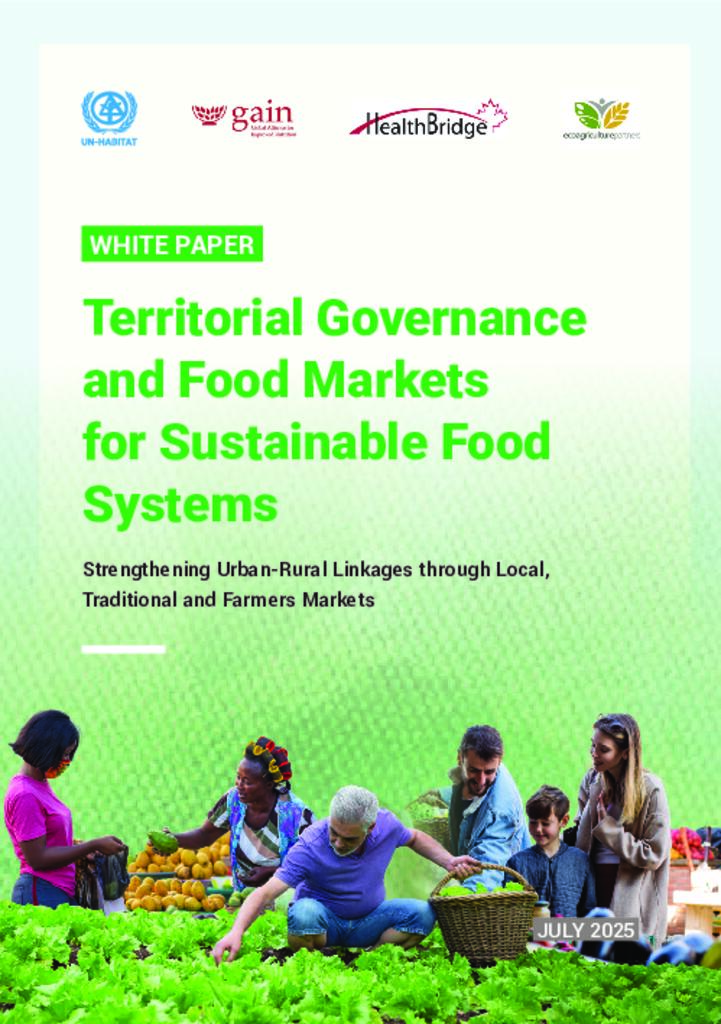This White Paper makes the case for a territorial governance approach that reinforces urban–rural linkages by empowering local actors and enabling their collective agency. Local, traditional, and farmers markets serve as strategic hubs that offer multiple levers and diverse forms of capital for transforming food systems within cities, across urban–rural interfaces, and throughout wider territorial landscapes. Investing in both hard (physical) and soft (capacity-building) market infrastructure, supporting diverse knowledge systems, and advancing inclusive “whole-of-society” governance are essential steps toward unlocking resilient and sustainable food systems now and in the future. With these foundations in place, communities, governments, and sectors can routinely apply best practices and participate meaningfully in decision-making processes that foster a wide range of regenerative, biodiverse food value chains. Such systems create market and food environments characterized by vibrant public spaces; access to affordable, safe, culturally preferred, healthy diets; reduced and valorized food waste; and opportunities for dignified, prosperous livelihoods.
Paper developed by GAIN in partnership with UN-Habitat, Health Bridge, World Farmers Markets Coalition and ECOAgriculture.
Citation: Trevenen-Jones, A., Sietchiping R., Githiri, G., Forster, T., Daniel, K., Troccoli, C., Moon, R. J., & Ramos, J. C. (2025, July). Territorial governance and food markets for sustainable food systems (white paper). UN-Habitat.
